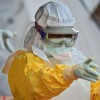
Planet Earth is not fighting the virus, but rather waiting for it to happen. A third of humanity has been quarantined and more than a billion children without school.
The world has been put on hold, the economy has frozen, the interaction between people has frozen, so that the virus can pass and leave as soon as possible. It is seen that if you look at the graph of the behavior of the virus in different countries, its increase causes even the German health system to collapse and, with that, it is said everything. It is true that China manages to contain the virus, now we will know if it will have been in record time or if that will be the waiting time of the rest of the world. But the rest of the world does not have the Chinese dictatorship that forces citizens to obey.
We know that in the cultures of southern Europe, the virus has penetrated faster and more brutally, having to lament a terrifying number of the deceased. Now the United States is after him. Is it the culture of these peoples that makes a difference? In Japan the virus has behaved differently, many explain that it is because of its culture.
It seems that two things are combined in this wait. On the one hand, the science of medicine that has declared time and time again that they do not know how the virus behaves/ will behave, that what we know is little and, the epidemiology that is doing the impossible to contain it. On the other hand, the culture of each country that greatly influences the way the population reacts to the virus. Culture matters who knows as much as medical science. In some villages, it is the same as being said, everyone does what they want, in others they just say things for the citizens to abide and follow. In some peoples, authority exists and has credibility, but in Latin America – the most wary region on earth – things do not happen if it is not with threat, fine and implementation of punishment.
Those of us who are quarantined for different reasons, we understand that it is a wait, we are waiting that we are not infected, waiting for time to go quickly so that it passes later, waiting that nothing will happen to our loved ones, hoping that the economic consequences will not be totally destructive of our livelihood. We are waiting, because we do not know, the uncertainty about the future has never been as true, as homogeneous and universal as it is now. The whole world has the same uncertainty, that is, the borders that differentiated us, the east and the West, the rich and the poor, the whites, the blacks, the Indians, the Chinese, the Japanese, the half-breeds, are over. The races are over, we’re all waiting. I’m sure more women than men have died, because women have more life expectancy, but outside of them we’re all the same.
Death paralyzes us. We are waiting for the continuation of life trying to evade death.
We will be more equal at the end of this wait, because the world will be poorer, each and each will be poorer, some will have lost much (the ones who had the most) and others, they will have lost everything even if that is little.
It is of all obvious that this virus comes to modify modernity, that individualistic modernity that seeks what you already have, that runs when it has arrived, that competes for what you do not need or care about, that accumulates because others do. Not for nothing was the DIOR house could produce alcohol gel instead of perfumes within days of starting the pandemic. They immediately understood that humanity’s priorities had changed and would continue to change.
Humanity has never had, as at this time of the onset of the virus, as much freedom as it is now. The largest number of countries with democracy, even considering the decline and the current decline, the greater the number of citizens with rights, the greater the number of citizens using their social and political freedoms. Those freedoms won with blood in so many parts of the world are being restricted in this wait, we must expect to varying degrees of “captivity”. A third of humanity has been put on hold, quarantine of different types throughout the earth.
At the same time, humanity has failed to achieve social guarantees to the very people who have been able to guarantee them freedom. The biggest deficit is in social guarantees.
This expectation shows that these social guarantees are provided by the States, the same ones that are providing the money to pass the crisis. Denmark is leading that fight, freezing the economy and taking care of all spending. Other countries are trying. Companies on their part run to the state so they can continue to exist. Capitalism, the author of the modernity we have, will it come out different from this wait? Whose property will the companies be held with state funds? Will companies return the amounts received as a loan? Will private public joint ventures be held? What will post-virus capitalism look like? Will the CEOs who are the first to say they stop collecting their pay will be changed? Will employee salaries in the private sector increase? Shouldn’t all, all their taxes, all people as a reward for the state, pay for saving the situation: to have survived?
Will the social and economic support that millions of employees, workers, workers around the world will make it possible to expand social security in the post-virus era? Aren’t we going to come out more equal than this wait? Are we all equal in the face of death, will we go out more equally before life? The re-boot of the economy will be slow, state aid will last its time. How will the state emerge from their direct transfer, subsidies, cost-taking situations, without leaving a broader social guarantee plan in place than those that existed before the crisis?
If they rescue the destituute during the crisis, will they then drop them back into destitution? Such inhumanity does not seem plausible. The pressure to keep certain transfers, certain subsidies, certain costs will be endless. Will humanity put people as a priority after the virus or will we put the economy a priority again? What’s that balance going to be like?
Especially in Latin America this issue will be central. Countries that already had high demands for social guarantees will be the strongest to demand a different level after the state has made trillions dance in the crisis. No one will believe there are no funds for people. People have been the focus of state action in this crisis, not the interests of a few, for the first time in all time, it is governed (forcibly?) for the majority, governments are obliged to put all other interests aside to deal with the virus crisis, putting people first.
Elections will show us after this crisis that people will applaud the search for the common good during this time. The common good, most of them, the sovereignty of people above all, are things not present in our Latin American societies unequivocally. Peoples will learn that it is possible to seek the common good, to put people above all else, without considering their condition or origin. Another shock to politics will be that experience of the common good. So far the complaint about our democracies is the scarcity of common good and the abundance of private goods as a guide (corruption lack of transparency).
Chile’s pre-virus social and political crisis is precisely about the scarcity/absence of common good, maximizing the common good is demand.
The state is the protagonist of this wait, without it we are lost. It is our taxes that make the survival of humanity possible. The vilified state that has been so attacked by those who propose radical capitalism, where everything regulates the market. Where would we be with the market today? Trillions of dollars that come from the state into private and public activity to continue to survive while we wait will mark a breaking point about the vision of capitalism. This does not exist without consumers, it is the consumer the king, the one who has the floor. The virus that brings us back to the essentials of human interaction. Who’s in charge? Do you send the capital or do you send the people? Isn’t that the discussion about democracy and the reasons for the emergence of populism and electoral authoritarianism?
It should also be added that Chile suffers particularly from the fever of singularity, that is to say a trait of modernity, which consists in not wanting to be part of the heap, but of the exclusive. In the world of commerce, exclusive/luxury products point to this concept of uniqueness, exceptionality. In the world of power and money is the fever of the “VIP”. When it is massified, it ceases to be by definition (premium, gold, platinum, diamond, all words that reflect that fever).
In Chilean culture, competition for first, uniqueness is deeply rooted. The President himself ratifies it in one of his speeches saying, “We are better than Italy.” The fever of being first. We always wanted to be first, to the point that we successfully managed to “sell” to the world the idea that we were different from the rest of the countries of the region, until the social outburst, which showed the opposite.
This expectation destroys the possibility of being first in a situation that precisely makes us equal. No one can have “more” viruses than another, no one can have less. It’s a binary situation, yes or no. That’s why people become disoriented and ask for immediate solutions, so that they can be able to be the first. Quarantine screaming is nothing more than popular demand to try to shorten the wait. In our ideosincracy, everyone gets into everyone’s business. No one stops commenting on naccording to the subject and in the absence of authority and leadership, it is worth those who shout louder. That increases uncertainty, fear.
In each people according to the legitimacy of authority. In Chile, it comes at a time when authority is on the ground, along with the prestige of politics and trust in institutions, but even more so with one of the lowest interpersonal trusts in the world. Worst moment could not have been chosen to have to lead the Chilean people to unerd wills around a common goal. Who can drive it if no one believes anyone? The last time we had a common goal as a nation was in 1988 when we defeated the dictator at the ballot box, hence in the run-up Chilean society has been individualized to an extreme point. Each with his own, no matter the other. The social and political crisis leads with the absence of leadership to a massive anomia, which does not recover with the waiting for the virus. We do not yet know the consequences of the virus on this anomic population. Will suicides, depressions increase….? We haven’t known you’re looking at that effect.
Waiting for a quarantine, everyone does what they know how to do. Shakespeare, for example, wrote one of his quarantined works, Newton discovered gravity. The bad thing about this modernity we have is that time runs so often without content and those who are used to running don’t know what to do when they stand still. Standing without the stress of the urgent slope, of not fulfilling, of not arriving in time, of not reaching to do everything that has to be done, many people stay looking at the wall, without knowing another activity to pass the time, except recreation or sharing with others. Since you can’t practice those, the remaining emptiness is enormous. Those who were waiting to have a horizon see that it is moving away creating even more anguish. The time we always have now left over? Actually time is wasted, it goes away, waiting.
Let’s not wait any longer. We are already embarking on a modernization of modernity as we learn not to hope to return, but to move towards a more humane, more horizontal, more accessible and supportive world, where we understand that only all together we are worth and can be saved. One of us is worthless, we can’t survive. Quite the opposite of individualistic modernity that teaches us that, alone, we can be the first. Will this virus also kill that modernity?
We have to wonder what modernity serves us as human beings to be more human. Time is never left, but simply wasted. So that it doesn’t, we have to know where we’re going and what we want. Of course, we already know that it is we who unbalance the nature of the planet, that by snevering all or partly billions of people already manages to show us what it would be like if it were not for us. It’s nature that brought us this virus that makes us wait, the very one we were destroying. The same one that still doesn’t leave its final verdict.
And as Camus says in his book “The Plague,” we can’t sing total victory when the wait is over, because “this will come back” as it has now. This wait forces us to think.
The content poured into this opinion column is the sole responsibility of its author, and does not necessarily reflect the editorial line or position of El Mostrador.





